Today SevenPonds is featuring an interview conducted several years ago with Lennon Flowers, the founder and executive director of The Dinner Party, a multinational community of individuals working together to open conversations about life after loss. Founded in December 2013, The Dinner Party started with an impromptu get together in a backyard in Los Angeles and has now expanded to nearly 200 locations worldwide. this edited interview, Lennon discusses how this unique community developed and shares her personal insights about the transformative power of connection in healing grief and loss.
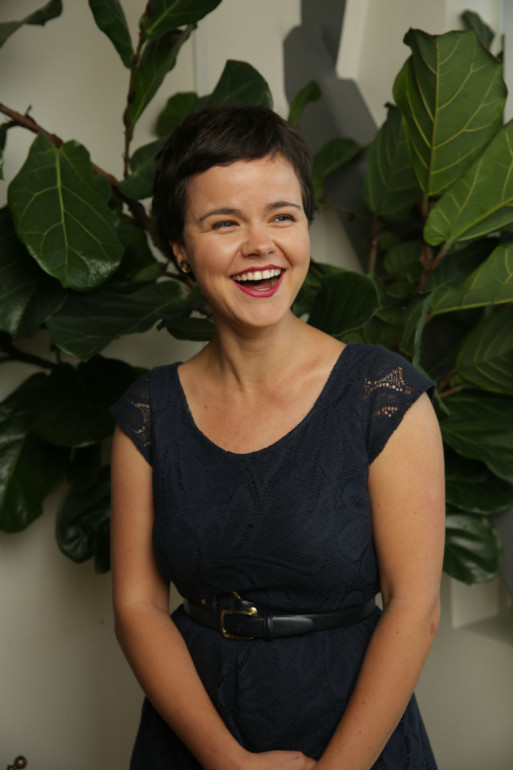
Lennon Flowers
Thanks for taking the time to speak with me today, Lennon. Can you start by telling me a little bit about The Dinner Party and how it came to be?
Actually, it came about almost by accident. About seven years ago, I moved to LA from the East Coast, and I was naturally looking to make connections here. I met several people through work and friends, but I found that there was always a sense of separateness in how I related to them. I lost my mother to cancer when I was 17, and I realize now that that loss had created a sense of heaviness — a “deer in the headlights” feeling that isolated me from my peers. I didn’t feel as if I had any way to share my experience or the perspective that losing my mom at such a young age had given me about life.
Then I met my friend Carla in 2010, and the first “dinner party” evolved. We invited five women who had also gone through a significant loss, and we shared dinner together in the backyard. There was no agenda. It was not (and is not today) a “support group.” Carla, who had lost her father, cooked his favorite paella, and we all just sat and talked. It was the first time in many years that I did not feel alone.
So, from that dinner the idea for a more permanent community evolved?
Yes. At that first dinner party it became very apparent that creating a space for sharing was an enormous catalyst for change — not just personal change but breaking down social taboos against sharing the universal experience of grief and loss. It also created an enormous sense of connectedness. We had all assumed that we were the only ones who felt isolated and alone, and it was tremendously freeing to learn that was not the case.
How did you grow from a small group of friends to a multinational network of dinner parties in just two years? That seems like an enormous feat!
During that first year, the group just grew organically. Carla and I held monthly dinner parties, which gradually grew from five or six people to larger and larger gatherings. Friends told friends, who told more friends, and soon we had communities in San Francisco, New York City and Washington D.C.
Then in December 2013 we launched an Indiegogo campaign and began to get the funding we needed to grow. We launched our website and began connecting people, and the idea just took off.
Is the community devoted solely to young people who have experienced loss or is it open to people of any age?
Lennon: Initially, because I and my circle of friends are in our 20s and 30s, the community naturally evolved to include mainly younger people. Most of us were the first in our peer group to experience the death of a loved one, and we were all far too familiar with how all conversation simply stopped when the subject came up. So the dinner parties were a way to let go of that stigma, to acknowledge our pain and also to recognize how the experience had allowed us to grow into better, more compassionate, more resilient adults.
As the community has evolved, though, it’s become apparent that loss compounds with time and age, and young people are not the only ones who feel trapped by social taboos. Loss is a universal experience, and it can be a way to build bridges and connection between generations as well. So now, when an older person reaches out to us, we try to match them with a table in their community where there are people their own age. And if there isn’t an appropriate table where they live, we encourage them to start one themselves.
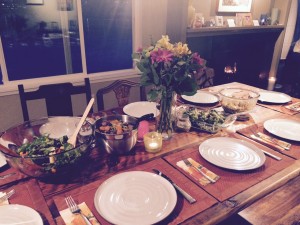
A Dinner Party Table
(Credit: Kim Creager)
You mentioned earlier about wanting to change the social taboos around grief and loss. Can you share a little bit about how you envision The Dinner Party facilitating that?
It’s no secret that we live in a culture where grief and loss are acknowledged in only the most superficial ways. When we speak of them at all, it is usually in the spirit of finding answers — of “fixing” what’s broken so we or another can “get on with” our lives. There is no room in that culture of silence to be authentic — to be fully seen. We are not encouraged or allowed to “hold our suffering in our gaze and not avert our eyes.”
Sharing a meal is a simple way to build connection — to share our humanness in a culturally universal way. Food is an amazing doorway — it allows people to “come in at a slant” and approach each other with empathy and compassion. There are no rules at our tables: People are free to speak or not speak, to share feelings or simply sit and enjoy the meal. This makes the hard conversations — the ones we avoid at great cost to ourselves — easier to have.
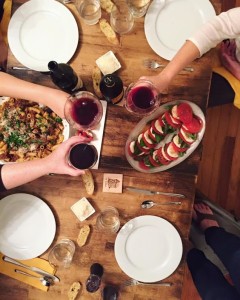
A Dinner Party Table
(Credit: Jen Patton)
Loss is such a universal experience. Do you have people who join your tables who have gone through losses unrelated to death, such as a miscarriage or divorce?
Absolutely. As the group has expanded, it’s naturally evolved to include men and women who have gone through many different kinds of loss, including things like the loss of a child through miscarriage or stillbirth or the breakup of a long-term relationship. Every loss is traumatic in its own way.
Our goal, again, is not to provide answers, but to give people tools. We believe that every story is different, but our shared experience is what bonds us as humans and helps us grow. When we share our stories, we begin to cut through the B.S. and come to terms with the violence we do to ourselves by censoring and judging and hiding what we feel. It opens up a space where we can begin to live more boldly, to reach out to others in a more meaningful way, and to ask ourselves what it means to live well.
I know that the No. 1 rule at your tables is that you do not give “advice.” But, would you be willing to share some tips with our readers about how they can begin to move forward after a loss?
You’re right. I don’t give advice, as a rule. But there are a few things that I would emphasize to anyone who is working towards moving forward after a loss:
First, and most importantly, we are all our own best experts. There are no rules. No one can tell you what or how to feel.
Realize that loss changes you forever, and life will never be as it was before.
There is a cost to living a divided life. Experiencing your pain is part of getting to a place where you can experience joy again.
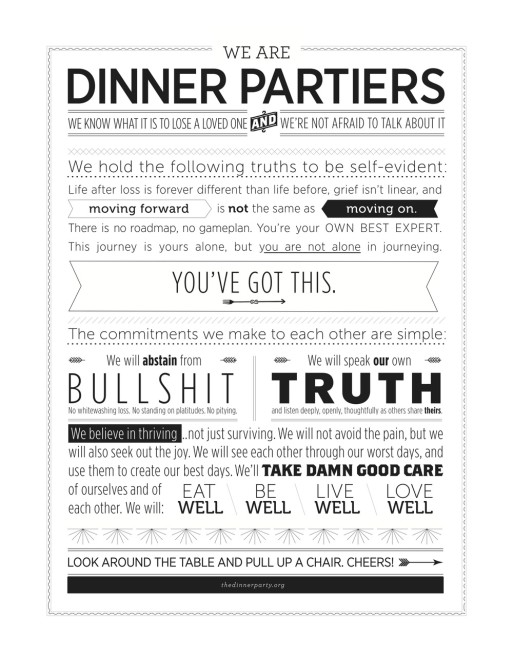
The Dinner Party Manifesto
OK I’m hooked! How does a person go about joining a table or starting one?
The easiest way to join a table is to go to our website and sign up. We have matched thousands of people all over the world with hosts. Dinners are usually held about every eight to 10 weeks, so there’s often a bit of a wait. But we try to get people matched up as quickly as we can.
For those who don’t want to wait to be matched with a table, or if there isn’t a table where they live, we suggest that they set up a table of their own. We provide a very helpful step-by-step host guidebook on our website that they can download for free.
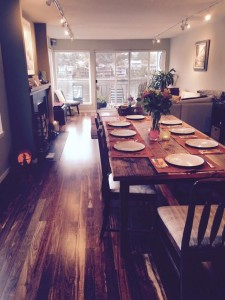
Credit: Kim Creager
Do you charge membership fees or dues?
I find that money gets in the way, so we don’t charge a membership fee or dues, and there is no charge to come to a table to sit down and eat. (Our dinners are all pot-luck style.) As of now, we have funded about 70 percent of our work through three Indiegogo campaigns and individual contributions of $15 to $20 each. We are looking at a number of revenue models to help us sustain the organization, but those are still up in the air right now.
Can you tell me what you see in The Dinner Party’s future. What would you like to accomplish?
Lennon: Right now our goal is to simply keep connecting people and spreading the word that there is life after loss. My hope is that by bringing people together to talk about things like death and loss and grief in these intimate settings we can begin impacting some of the social taboos around talking about them as well. Death is inevitable. Hopefully our tables can help more people come to terms with that and realize that sharing our feelings doesn’t have to be as scary or difficult as we think.

 How Sharing a Meal Can Help Heal Grief and Loss
How Sharing a Meal Can Help Heal Grief and Loss


 Recovering Cremation Remains After the Los Angeles Fires
Recovering Cremation Remains After the Los Angeles Fires
 “As Tears Go By” by Marianne Faithfull
“As Tears Go By” by Marianne Faithfull
 “The Sea” by John Banville
“The Sea” by John Banville














